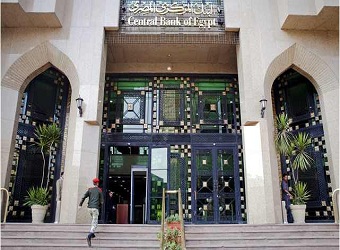Egypt’s central bank said commercial lenders had attracted $9 billion in inflows since the country’s pound was floated three months ago.
“Trust in the system is growing,” Assistant Sub Governor Rami Aboul Naga told Bloomberg News late Tuesday. “We have seen a notable improvement in foreign currency inflows to banks over the past few weeks.”
The central bank said Nov. 3 it was abandoning all currency controls in an effort to ease a dollar shortage that crippled economic activity, paving the way for Egypt to secure a $12 billion International Monetary Fund loan. The dollar traded at as much as a 100 percent premium to the official exchange rate on the black market before the decision.
The IMF said last month that Egypt has created a “well-functioning” currency market that is reflected in the pound’s exchange rate, adding that the currency may strengthen after a period of “overshooting.” The pound has weakened by more than 50 percent since the float and was trading at 18.725 per dollar at 9:07 a.m. on Wednesday, according to data compiled by Bloomberg. Stocks have since surged by more than 40 percent.
“The diversity of sources of inflows from remittances, individuals, investments is a major indicator of the success of the new system,” said Reham ElDesoki, senior economist at Dubai-based investment bank Arqaam Capital.
“Now there is a gradual erosion of the foreign currency backlog. Once this happens, the pound will start strengthening and the black market will completely disappear,” she said.
Source: Bloomberg
